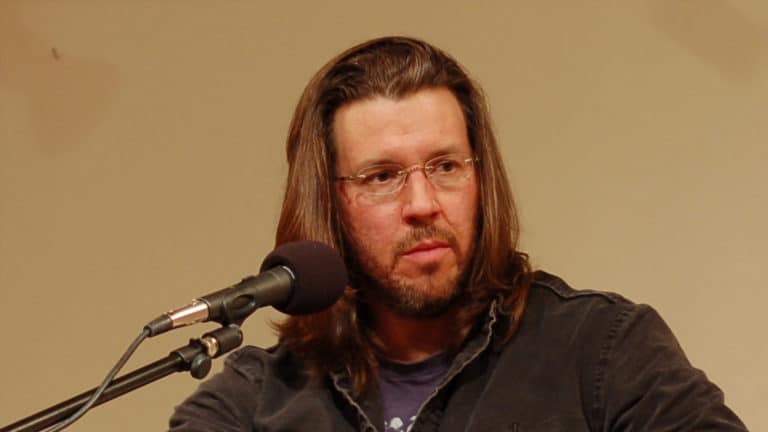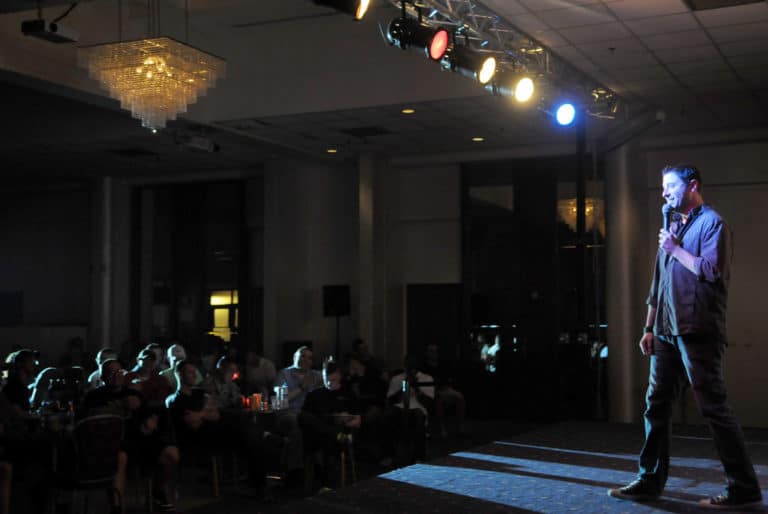As a college sophomore, I took a one-on-one fiction tutorial. I was terrible. I concocted characters and experiences that were hollow and uninteresting. I struggled to invent it all. Despite having read many wonderful authors who used threads, scraps, or the entire cloth of their own lives in their fictional works, I never considered mining my own life stories during that semester. Thinking back, I had a trove of material available to me. Why was I unable to explore and exploit it? Was I embarrassed by it? Did I think of my own experiences as somehow unworthy or invalid?
After my husband died in the World Trade Center on September 11, 2001, I became a “9/11 Widow.” As the media relentlessly pursued the 9/11 victims’ families for stories about their loved ones and their experiences, I refused all interviews because I didn’t want my experiences reduced to a mere quote or two in someone else’s news story. Yet, as the representations of “me” in the news fell short and inaccurate, I felt compelled to share what I knew by writing first person accounts of my life in essays and in my graphic novel memoir American Widow (with art by Sungyoon Choi, Villard, 2008).
Although I wrote specifically about how I experienced this very public traumatic event, I often also wrote about the small personal aspects within it. And as I wrote about my widowhood, I also started to explore and write about other things from the trove of all my life experiences.
Whether you want to write about your life experiences as memoir, or within a fiction, here are a few things I’ve learned over the years about this process that can be exhilarating and devastating, and sometimes both at the same time.
You are the Expert of You. You have all the information you need within you. Although you don’t need to do outside research about your experiences, you do need to dig deep inside yourself and be honest about what you find. As your story develops, an amazing moment happens when the story you thought you were writing cracks open to reveal unexpected truths. This happens to me especially when I’m in a work’s editorial phase, cutting excessive language out and filling in parts that don’t quite make sense. Throughout American Widow, I wrote about my anger with my husband because of an argument we’d had right before he died. When my editor wanted me to address this argument one last time, I condensed an actual letter I’d written to my husband to one brief sentence: “Dearest, Sorry we argued about nothing.” Our argument had been so important at the time, but in the context of all that happened next, it became so small. Through those words, I was able to emphasize that smallness for myself, and for the reader, and ultimately, to make peace with my guilt about how we spent our last minutes together.
Claiming Ownership. By writing about your experiences, you transform your memories into tangible monuments. You validate what happened to you from your own perspective, with your own creativity. As such, the process and result is powerful and therapeutic. It is especially therapeutic when dealing with uncontrollable events. Even though I could never undo what happened on 9/11, I could control my telling of it, bend the contours of my experiences and make it art that I could share with others.
Conditional Trust. After exerting control over your experiences through writing, relinquishing that control can be daunting yet thrilling. What will happen to your work when readers and editors interact with it in its first forms? Just as you’d care for any delicate and beloved creature, make sure you trust those with whom you share your writing. A great editor can make your words more yours with a nimble and skillful touch. But by putting your work into the wrong hands, you risk being devastated and humiliated to your core because of your work’s personal nature.
I felt proud when I published my first essay in early 2002. But when the article posted online, it included a sensational “lead-in” I hadn’t written or approved of prior to publication. Those new sentences, front ending my essay in my voice, embarrassed me. Despite that incident—which I ensured never happened again—I kept publishing my first person accounts and moved many readers with my stories. That made it all worthwhile.
So go ahead, think about your life and what is interesting, exciting, intense, meaningful and useful. Then take whatever lights a spark in you and write it.





















